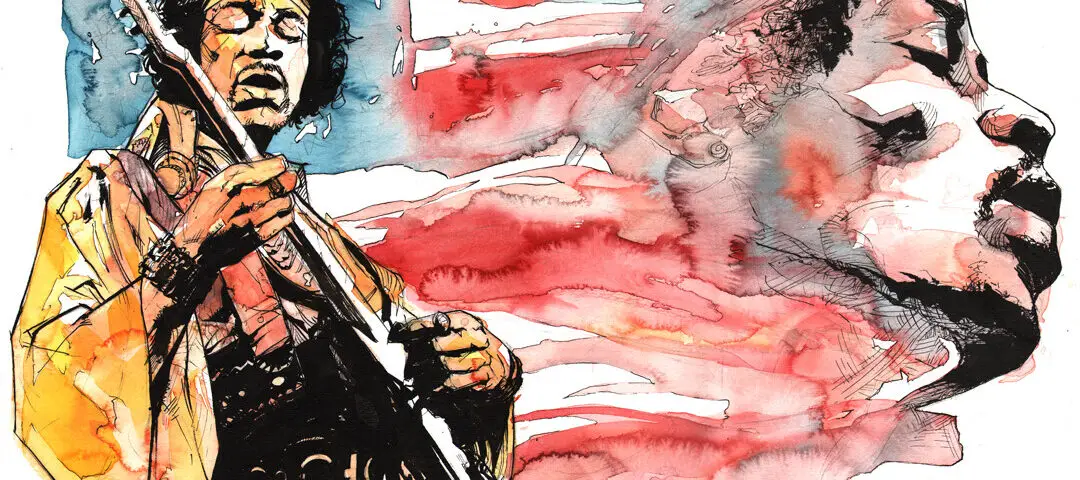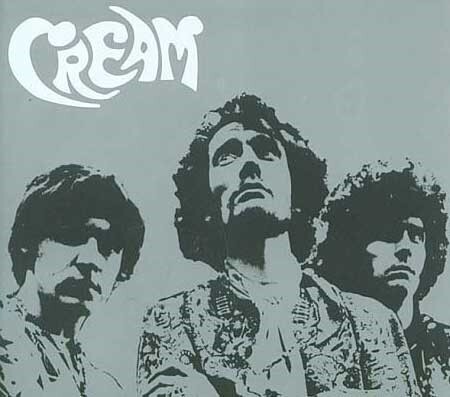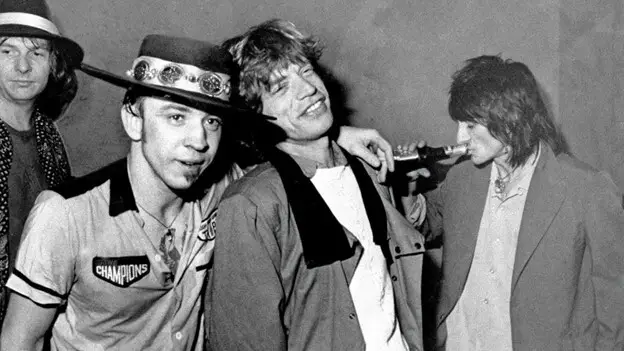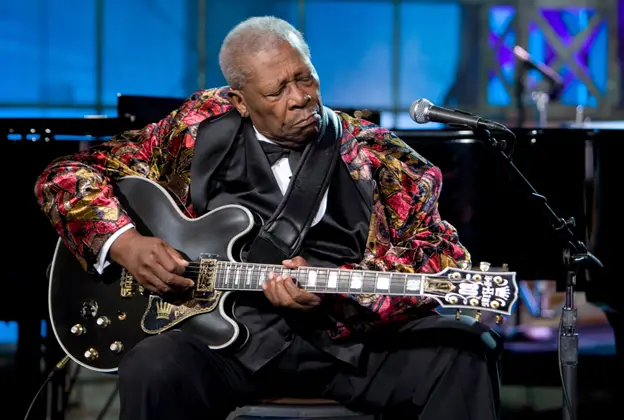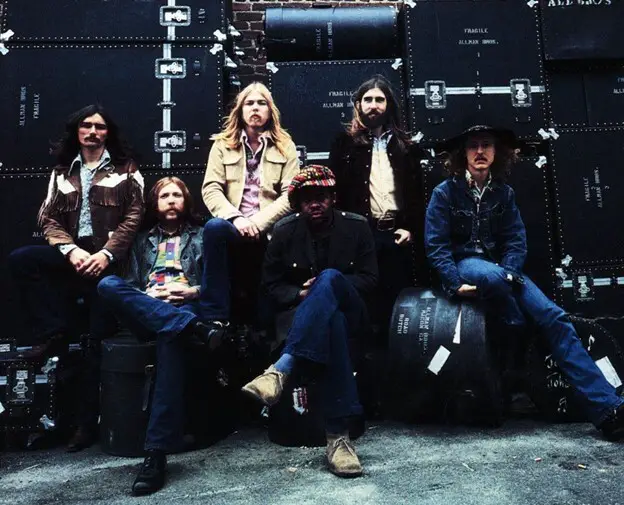Music reflects our thoughts and emotions, but no other genre could get as real and gritty as the blues. Blues touches the soul and presents the experience of life unapologetically. No matter what it is – love, sorrow, sensuality, you name it – the blues and the most famous blues bands managed to shake things up for audiences across generations.
These popular bands with their sold-out shows and high-ranking albums can be credited not just with changing the sound of blues music, but shaping its evolution and pushing it into the mainstream.
From old-school blues to a more contemporary approach, who are the most famous blues bands of all time? They are the Muddy Waters Band, Cream, The Allman Brothers Band, B.B. King and his Orchestra, The Black Keys, The Jimi Hendrix Experience, Stevie Ray Vaughan and Double Trouble, and ZZ Top.
These mega-stars not only moved their fans, but they started a movement that will forever be remembered in the blues hall of fame. From iconic lyrics to enthusiastic riffs, let’s look at why they were the standout Blues acts.
What Makes a Blues Band Famous?
Starting in the early 1950s, some of the best Blues bands pushed the genre into the mainstream and permanently altered the sound of music today. From the breadth and width of their catalogues to the originality of their sound, these bands earned their way to legendary status.
But overall, what makes a famous blues band is a combination of musical talent, authenticity, innovation, live performance skills, and cultural impact.
And so, here’s the list of the top 8 famous blues bands.
Muddy Waters Band
The 1950s saw the birth and rise of Muddy Waters – one of the greatest musicians of his time. Waters, alongside Jimmy Rogers, Elga Edmonds, Otis Spann, Little Walter Jacobs, and Willie Dixon, shook-up Delta blues with electric amplification to create a new and exciting sound.
His music was raw, soulful, and powerful, and he had a voice that could make the hair on the back of your neck stand up. Plus, he had a magnetic stage presence and a cool, confident swagger that made him a true icon of the blues. Whether he was playing in a smoky club or on a big stage, Muddy always knew how to connect with his audience and deliver a killer performance.
And let’s not forget his timeless hits like Mannish Boy, Hoochie Coochie Man, and Rollin’ Stone, which continue to inspire and thrill music fans worldwide. So yes, Muddy Waters is and will remain an exceptional musician, and his band will always be remembered as a true testament to the weight of the blues.
Cream
Blues fans will immediately recognise Cream – a collective of perhaps the most famous blues figures ever. With Jack Bruce on bass, Eric Clapton on guitar, and Ginger Baker on drums, the band reimagined blues rock classics like Crossroads and Born Under A Bad Sign to critical acclaim.
They took the blues and added their own psychedelic and exploratory touches, creating a fresh sound that helped define the blues-rock genre as we know it today. Yet the trio’s ability to improvise within the tracks while remaining completely in sync is hailed as masterful by blues and rock fans alike.
One of the band members who caught the eye was Eric Clapton. Referred to as a master of the blues, he had the technical proficiency that allowed him to create some of the most expressive and sincere solos in blues history. Although he was just one of 3 masters in the all-star band, his spectacular musical excellence outlived the short years of Cream’s existence.
Stevie Ray Vaughan and Double Trouble
From the moment Stevie Ray Vaughan’s fiery guitar licks came screaming out of the speakers, you knew you were in for a wild ride. His playing was like a force of nature – raw, husky, and full of soul. And the chemistry between him and the band Double Trouble was electric – with Tommy Shannon’s thumping bass lines and Chris Layton’s thundering drums providing the perfect foundation for Vaughan’s scorching solos.
Stevie Ray Vaughan wasn’t just an amazing guitarist. He was also an incredible songwriter and bandleader. With his band, Double Trouble, he created some of the most esteemed blues-rock songs of all time, including Pride and Joy, Texas Flood, and Couldn’t Stand the Weather.
After the success of their debut album, Texas Flood, the band became incredibly popular among critics and fans, eventually winning several Grammys.
Sadly, Stevie Ray Vaughan’s life was tragically cut short when he died in a helicopter accident in 1990. But there is no doubt that his legacy lives on through his music and continues to inspire and move listeners. Stevie Ray Vaughan and Double Trouble were a famous blues band and a true force in the blues world. Their influence can still be felt in the music of countless artists today.
B.B. King and his Orchestra
Known as the King of Blues, B.B. King and his Orchestra are revered as one of the most famous blues bands ever – a title earned through talent, dedication, and influence in the genre.
King’s career began in the 1940s when he started performing on the street corners of Memphis. He quickly gained a reputation as a notable musician, and some years later, he began recording for the famed blues label, RPM Records. Here he developed his signature sound while shaping his impactful and emotive live performances.
This was the first of a very successful, long-running career for the band. BB King performed with his band, the Orchestra, for more than five decades, releasing numerous albums and winning several awards for his work. Their influence can be heard in the work of countless musicians who have followed in their footsteps.
The Allman Brothers Band
Formed in 1969 in Macon, Georgia, the Allman Brothers Band did not wait to be noticed. Instead, they established themselves as a powerhouse live act, blending elements of blues, rock, jazz, and country into a unique and soulful sound that captured the attention of their peers.
At the heart of the Allman Brothers Band’s music was the genius guitar playing of Duane Allman and Dickey Betts. Both guitarists were heavily influenced by the blues. While their playing was characterised by an unrefined intensity, their twin guitar solos on songs like Whipping Post and In Memory of Elizabeth Reed became unforgettable, and have been cited as a masterful influence.
Not confined by the rules of pure blues, their sound helped to lay the foundation for Southern rock. And their impact can be heard in the work of bands like Lynyrd Skynyrd and the Black Crowes.
The Jimi Hendrix Experience
Jimi Hendrix’s ability on the electric guitar took the world by storm. From stories to real life, the gossip on the streets was that Eric Clapton received a call that he needed to watch this man, Jimi Hendrix, and after seeing the maestro live, even Clapton felt insecure about his future in guitar. Clapton was a guitar hero, but his reaction proved the left-handed player’s vigorous talent.
One of Hendrix’s most famous blues performances was his rendition of Red House. Red House features Hendrix’s blistering guitar work and it showcases his mastery of the blues form. Hendrix on the stage was electrifying and unmatched. Yes, he often used gimmicks to heighten his already genius playing, but as an entertainer, he understood the audience.
No one expected the young self-taught guitarist to impact the music industry the way he did. Jimi’s experiments and use of his tools are still apparent at festivals today. The Jimi Hendrix Experience’s influence is still being felt in everything from heavy metal to R&B.
ZZ Top
With one look at the long beards and Stetsons of ZZ Top, you knew these guys were here to talk serious guitar business. Over the years, they have dabbled in whatever contemporary genre was hip and happening, but what is more important is their commitment to classic blues-rock.
ZZ Top’s first album – literally titledZZ Top’s First Album – cemented their 50-year success stream and livelihood. This album, recorded in 1971, not only established the blueprint of their sound but possibly made them the best blues-rock band of all time.
These guys pulled out all the stops, and with a hunger to create without the traditional blues barriers, this famous blues band crafted catchy songs with a level of complexity and musicianship rarely seen in the genre. It is no surprise they are still relevant in the 21st century.
The Black Keys
We had to throw a modern alternative to the blues heavyweights listed so far. But don’t get us wrong, The Black Keys are well on their way to legendary status. Creating fuzz-filled, riff rock, this duo is the modern amalgamation of Jimi Hendrix and Eric Clapton.
Listening to The Black Keys will not necessarily take you back to the stages of the 1970s, but it will give you a good indication of how the blues genre has evolved. Their focus was never to dwell on the rhythms and techniques that made the blues genre famous in the first place. They wanted to keep the raw honesty and intensity while reviving the blues for the new millennium.
And they did exactly this. The Black Keys breathe the blues and no-matter the clever new-age ideas in their discography, you will always be transported back to the common thread that presents the colour palette found in blues today.
Final Thoughts
As much as we want to strap a set of rules to the blues – the genre begs quite the opposite. From the cult status of ZZ Top’s string-bending guitar licks to what a modern take with The Black Keys, each band brought something to the table that satisfied the blues craving of the time.
As long as we live and are influenced by our daily grinds – for good or bad – we will feel pain, love, loneliness, happiness and more. This is the foundation of blues music. And as long as we recognise feelings, artists will create music to express them that will transcend generations.
The most famous blues bands reached stardom for more reasons than we can account for. Musical talent, authenticity, innovation, live performance skills, and cultural impact were some of the major reasons for the bands’ success.
But legends stay relevant because they dare to say it like it is.

